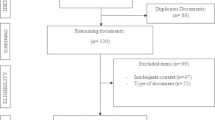Abstract
This paper reports the learning analytics on the initial stages of a large-scale, government-funded project which inducts university students in Hong Kong into consideration of academic integrity and ethics through mobile Augmented Reality (AR) learning trails—Trails of Integrity and Ethics (TIEs)—accessed on smart devices. The trails immerse students in collaborative problem solving tasks centred on ethical dilemmas, addressed in real, actual locations where such dilemmas might arise, with contextually appropriate digital advice and information available on hand. Students play out the consequences of their decisions which help reinforce the links between the theoretical concept of academic integrity and ethics and the practical application in everyday contexts. To evaluate the effectiveness of the TIEs, triangulation of different sets of data is adopted and these datasets include user experience surveys, qualitative feedback, clickstream data, and text mining of pre-/post-trail discussion. Thousands of students’ responses and related data gathered are analysed to ascertain the effectiveness of these mobile learning trails in enhancing students’ awareness of AIE issues. The positive learning outcome of the TIEs suggests that this approach can be adopted and applied to a wider scope of the academic curriculum and co-curriculum.







Similar content being viewed by others
References
Chan, J., Chiu, R., Ng, G., & Kwong, T. (2015). How clickstream tracking helps design mobile learning content. International Journal of Humanities Social Sciences and Education (IJHSSE), 2(7), 95–104.
Dicheva, D., Dichev, C., Agre, G., & Angelova, G. (2015). Gamification in education: A systematic mapping study. Educational Technology & Society, 18(3), 75–88.
Domínguez, A., Saenz-de-Navarrete, J., de-Marcos, L., Fernández-Sanz, L., Pagés, C., & Martínez-Herráiz, J. J. (2013). Gamifying learning experiences: Practical implications and outcomes. Computers & Education, 63, 380–392.
Dunleavy, M., Dede, C., & Mitchell, R. (2009). Affordances and limitations of immersive participatory augmented reality simulations for teaching and learning. Journal of Science Education and Technology, 18, 7–22.
Gibson, D., & Ifenthaler, D. (2016). Preparing the next generation of education researchers for big data in higher education. In B. K. Daniel (Ed.), Big data and learning analytics in higher education (pp. 29–42). Cham: Springer International Publishing.
Gibson, D., & Webb, M. E. (2015). Data science in educational assessment. Education and Information Technologies, 20(4), 697–713. doi:10.1007/s10639-015-9411-7.
Johnson, L., Adams Becker, S., Cummins, M., Estrada, V., Freeman, A., & Hall, C. (2016). NMC horizon report: 2016 higher (Education ed.). Austin: The New Media Consortium.
Johnson, L., Adams Becker, S., Estrada, V., & Freeman, A. (2015). The NMC horizon report: 2015 (Museum ed.). Austin: The New Media Consortium.
Johnson, L., Adams Becker, S., & Freeman, A. (2013). The NMC horizon report: 2013 (Museum ed.). Austin: The New Media Consortium.
Johnson, L., Smith, R., Willis, H., Levine, A., & Haywood, K. (2011). The 2011 horizon report. Austin: The New Media Consortium.
Jones, D. L. (2011). Academic dishonesty: Are more students cheating? Business Communication Quarterly, 74(2), 141–150.
Kuhlmann, T. (2009, July 14). Build branched e-learning scenarios in three simple steps. Retrieved from https://blogs.articulate.com/rapid-elearning/build-branched-e-learning-scenarios-in-three-simple-steps/.
Lave, J., & Wenger, E. (1991). Situated learning: Legitimate peripheral participation. Cambridge: Cambridge University Press.
Lee, K. (2012). Augmented reality in education and training. TechTrends, 56(2), 14–19.
Li, P., Kong, S.C., Guo, C., Wong, E., Chan, J. (2015). Enhancing academic integrity online via blended learning and discussion analytics. Proceedings of the eLearning Forum Asia 2015, Singapore.
Manly, T. S., Leonard, L. N., & Riemenschneider, C. K. (2015). Academic integrity in the information age: Virtues of respect and responsibility. Journal of Business Ethics, 127(3), 579–590.
Papamitsiou, Z., & Economides, A. (2014). Learning analytics and educational data mining in practice: A systematic literature review of empirical evidence. Educational Technology & Society, 17(4), 49–64.
Pence, H. E. (2010). Smartphones, smart objects, and augmented reality. The Reference Librarian, 52(1–2), 136–145.
Simola, S. (2017). Managing for academic integrity in higher education: Insights from behavioral ethics. Scholarship of Teaching and Learning in Psychology, 3(1), 43–57.
Wu, H. K., Lee, S. W. Y., Chang, H. Y., & Liang, J. C. (2013). Current status, opportunities and challenges of augmented reality in education. Computers & Education, 62, 41–49.
Yuan, M. L., Ong, S. K., & Nee, A. Y. C. (2008). Augmented reality for assembly guidance using a virtual interactive tool. International Journal of Production Research, 46(7), 1745–1767.
Acknowledgements
The authors would like to thank the University Grants Committee of the Hong Kong Special Administrative Region and Hong Kong Baptist University for funding this project. We would also like to express our gratitude and appreciation to our project collaborators in the three partner institutions, The Chinese University of Hong Kong, The Education University of Hong Kong, and The Hong Kong Polytechnic University. A special vote of thanks should be registered for Ms Grace Ng, Dr. Isaac Chan, Miss Erica Zhong and Mr Rex Chiu of the Centre for Holistic Teaching and Learning at HKBU for their support in this project and in the preparation of this manuscript.
Author information
Authors and Affiliations
Corresponding author
Rights and permissions
About this article
Cite this article
Kwong, T., Wong, E. & Yue, K. Bringing Abstract Academic Integrity and Ethical Concepts into Real-Life Situations. Tech Know Learn 22, 353–368 (2017). https://doi.org/10.1007/s10758-017-9315-2
Published:
Issue Date:
DOI: https://doi.org/10.1007/s10758-017-9315-2




